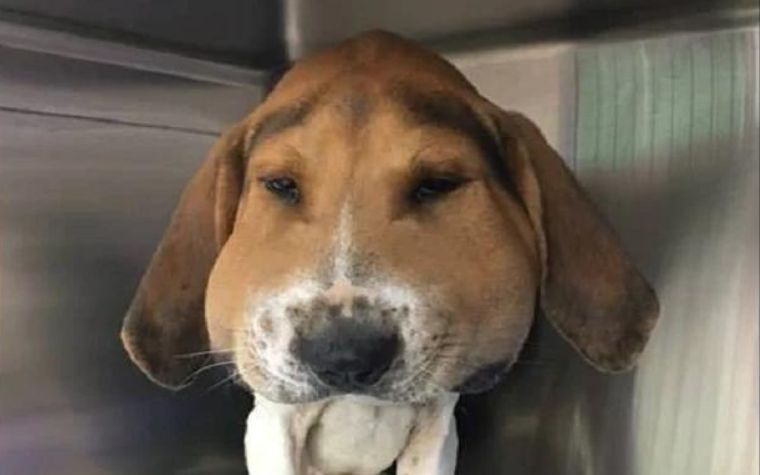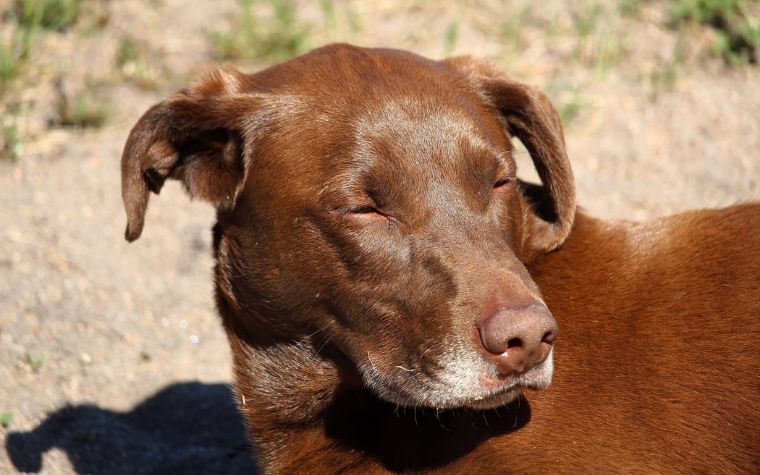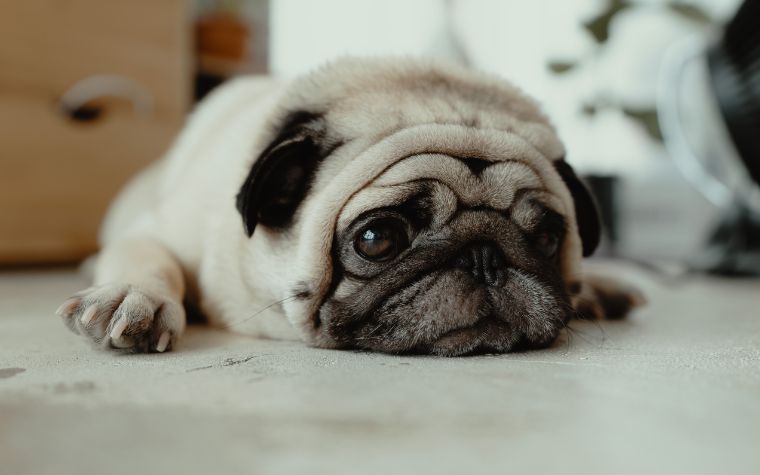It is genuine to say for any pet parent that finding one’s dog’s face all swelled up suddenly might get them in a panicked mode. A swollen dog face might imply a variety of things. Facial swelling in dogs does not always mean that things are going to be terrible but said that It’s crucial to have them checked out to rule out any unpleasant disorders that could require treatment.
In a case of facial swelling, the most you should do is thoroughly clean up and cover any noticeable wounds as best you can to prevent them from becoming infected further, and then contact your local veterinarian for further information.
But the question that first comes to your mind after seeing your pooch all swelled up is:
Also Read:- Everything to Know About the English Cocker Spaniel
Why Is My Dog’s Face Swollen?

There can be several reasons behind facial swelling in dogs ranging from benign to significant or even life-threatening.
Swelling can be treated in a variety of ways, but regardless of the reason, you should take your dog to the veterinarian as soon as possible. Some of them are :
1. Trauma
If your dog receives facial trauma, such as a vehicle accident or a tumble, facial edema may occur.
Head trauma is a severe injury that requires prompt attention from a veterinarian.
2. Dental Problem
A gum infection, abscessed tooth, tooth infection, tooth fracture, or other dental condition in your dog might cause swelling in the face.
Other signs and symptoms of dental issues include Fever, stress, depression, no intake of food, pain, etc.
Dogs, like people, can get tooth abscesses. Swelling beneath the eye in a dog is a typical symptom of a dental abscess.
Tooth root abscesses are excruciatingly painful and should be treated by a veterinarian as soon as possible.
3. Insects
Insect stings, such as bee and wasp stings, can cause your dog’s face to swell all over.
Stings from bees or wasps are most common around the muzzle, as this is where an unwary puppy could try to consume a bee.
If the swelling is significant, allergic responses to bug bites can be dangerous, as the swelling might impede your pet’s airways.
If your pet’s face is bloated and they are having trouble breathing, call your veterinarian right once.
4. Injuries and Wounds
If your dog gets bitten by another animal and does not receive timely care, an infection may develop beneath the skin.
Abscesses can be quite unpleasant for your dog, and in rare cases, the abscess may rupture before you seek a veterinarian’s help.
5. Tumors
On the face and head, abnormal growths can arise. Tumors can sometimes cause discomfort and pressure accumulation.
Facial tumors can spread and expand, causing harm to the facial nerves, muscles, and bones, whether benign or malignant.
Cysts are fluid-filled tumors that are usually harmless. They can, however, get tremendous and noticeable, especially on the face.
6. Infection of the Skin

Dogs can experience skin infections throughout their bodies, including their faces, occasionally.
Skin infections under the chin are common in puppies and adolescent dogs.
7. Allergies
- Your dog can be allergic to things like- food, medications, insect bites, chemicals, etc. the allergic reaction can cause the swelling of your dog’s face and throat.
- You can never point out if your dog is allergic to something until it shows any sign.
- What are the signs of allergic reactions in dogs?
- Troubled breathing
- Facial swelling
- Gums that are purple or blue
- Unconsciousness
How Can You Prevent Facial Swelling in Dogs?

If you know your dog has allergies, try to keep him away from allergens as much as possible and if your dog has a history of vaccination responses, inform your veterinarian so that the severity of the reaction can be reduced.
If your dog has been bitten by a bug, stung by a bee, or otherwise exposed to an allergy, administer an antihistamine immediately suggested by your veterinarian.
Tumours and cancer cannot be wholly avoided. Early intervention, on the other hand, can help to mitigate the damage.
It’s critical to respond quickly if you discover facial swelling in dogs.
Taking excellent care of your dog’s teeth will easily prevent most dental problems. Start and keep to a dental care routine for your dog.
Your dog will be considerably less prone to develop dental problems, and you will be able to detect problems sooner.
While accidents cannot always be avoided, there are things you can do to keep your dog safe in general.
Allowing your dog to run free or play off-leash in unfenced areas is not a good idea. Keep an eye on interactions with other animals to avoid conflicts.
If your dog suffers any form of trauma, take him to the veterinarian straight away.
